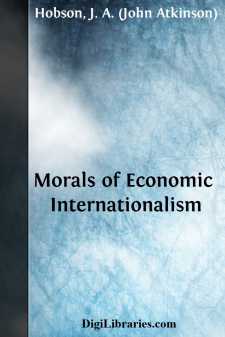Categories
- Antiques & Collectibles 13
- Architecture 36
- Art 48
- Bibles 22
- Biography & Autobiography 813
- Body, Mind & Spirit 142
- Business & Economics 28
- Children's Books 17
- Children's Fiction 14
- Computers 4
- Cooking 94
- Crafts & Hobbies 4
- Drama 346
- Education 46
- Family & Relationships 57
- Fiction 11829
- Games 19
- Gardening 17
- Health & Fitness 34
- History 1377
- House & Home 1
- Humor 147
- Juvenile Fiction 1873
- Juvenile Nonfiction 202
- Language Arts & Disciplines 88
- Law 16
- Literary Collections 686
- Literary Criticism 179
- Mathematics 13
- Medical 41
- Music 40
- Nature 179
- Non-Classifiable 1768
- Performing Arts 7
- Periodicals 1453
- Philosophy 64
- Photography 2
- Poetry 896
- Political Science 203
- Psychology 42
- Reference 154
- Religion 513
- Science 126
- Self-Help 84
- Social Science 81
- Sports & Recreation 34
- Study Aids 3
- Technology & Engineering 59
- Transportation 23
- Travel 463
- True Crime 29
Problems of Poverty
Categories:
Description:
Excerpt
Chapter V.
The Causes of Sweating.
§ 1.The excessive Supply of Low-skilled Labour.--Turning to the industrial system for an explanation of the evils of "Sweating," we shall find three chief factors in the problem; three dominant aspects from which the question may be regarded. They are sometimes spoken of as the causes of sweating, but they are better described as conditions, and even as such are not separate, but closely related at various points.
The first condition of "sweating" is an abundant and excessive supply of low-skilled and inefficient labour. It needs no parade of economic reasoning to show that where there are more persons willing to do a particular kind of work than are required, the wages for that work, if free competition is permitted, cannot be more than what is just sufficient to induce the required number to accept the work. In other words, where there exists any quantity of unemployed competitors for low-skilled work, wages, hours of labour, and other conditions of employment are so regulated, as to present an attraction which just outweighs the alternatives open to the unemployed, viz. odd jobs, stealing, starving, and the poor-house. In countries where access to unused land is free, the productiveness of labour applied to such land marks the minimum of wages possible; in countries where no such access is possible, the minimum wages of unskilled labour, whenever the supply exceeds the demand, is determined by the attractiveness of the alternatives named above.
A margin of unemployed labour means a bare subsistence wage for low-skilled labour, and it means this wage earned under industrial conditions, such as we find under the "sweating system." In order to keep the wage of low-skilled labour down to this minimum, which can only rise with an improvement in the alternatives, it is not required that there should at any time exist a large number of unemployed. A very small number, in effective competition with those employed, will be quite as effectual in keeping down the rate of wages. The same applies to all grades of skilled labour, with this important difference, that the minimum wage can never fall below what is required to induce less skilled workers to acquire and apply the extra skill which will enable them to furnish the requisite supply of highly-skilled workers. Trade Unions have instinctively directed all their efforts to preventing the competition of unemployed workers in their respective trades from pulling down to its minimum the rate of wages. The strongest of those have succeeded in establishing a standard wage less than which no one shall accept; unemployed men, who in free competition would accept less than this standard wage, are supported by the funds of the Union, that they may not underbid. Unions of comparatively unskilled workers, who are never free from the competition of unemployed, and who cannot undertake permanently to buy off all competitors ready to underbid, endeavour to limit the numbers of their members, and to prevent outsiders from effectively competing with them in the labour market, in order that by restricting the supply of labour, they may prevent a fall of wages....











